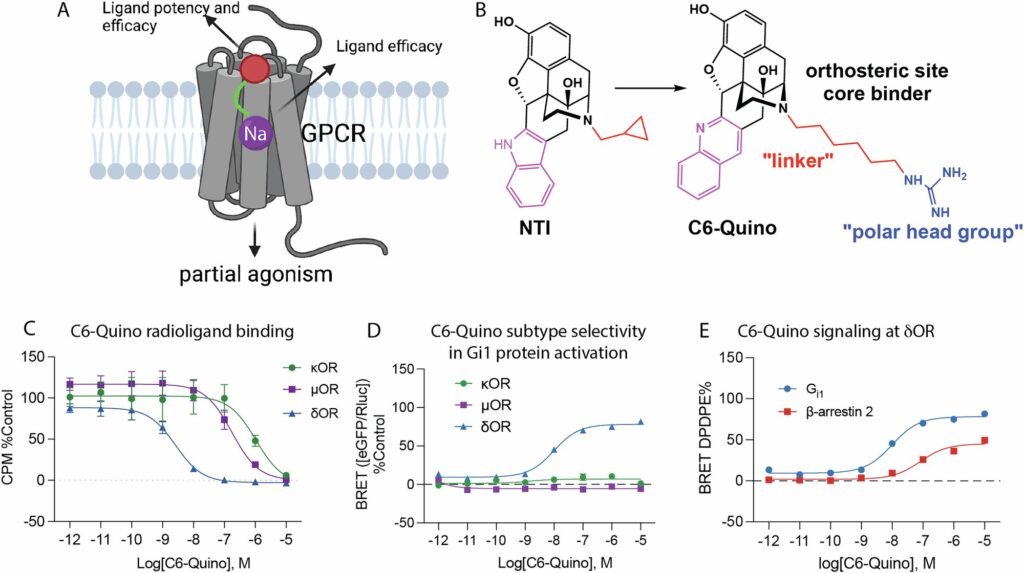University of Florida researchers have discovered a groundbreaking drug compound that targets specific receptors in the body to provide pain relief without the harmful side effects associated with traditional opioids. Published in Nature Communications, this study outlines a new approach to pain management that could revolutionize the way we treat chronic pain.
The human body utilizes three types of opioid receptors to regulate pain, with mu receptors being the primary target for most pain medications. However, these medications come with risks like respiratory depression and addiction. In contrast, the delta opioid receptor offers a safer pathway for pain relief, as activating these receptors does not cause respiratory depression. By focusing on developing drugs that target delta receptors, researchers aim to provide effective pain relief without the dangerous side effects.
Chronic pain affects a significant portion of the population, with millions of people experiencing daily limitations due to severe pain. The economic burden of chronic pain is staggering, highlighting the urgent need for safer and more effective pain treatments. The research conducted by the University of Florida team, in collaboration with other institutions, sheds light on the potential of targeting delta receptors for pain relief.
One of the main challenges with delta receptors has been the risk of seizures, which has hindered the development of treatments targeting these receptors. However, by modifying an existing drug to target specific areas of the delta receptor, researchers were able to achieve pain relief in animal models without the harmful effects of traditional opioids. This breakthrough could pave the way for safer pain medications that have a broader application beyond pain relief.
While the findings are promising, further research and clinical trials are necessary to validate the safety and effectiveness of targeting delta opioid receptors for pain management. The development of novel compounds that selectively activate these receptors represents a significant advancement in the field of pain relief and could have far-reaching implications for treating various conditions regulated by similar receptors.
In conclusion, the discovery of this novel drug compound offers a safer alternative for pain relief by targeting specific receptors in the body. The research conducted by the University of Florida team has the potential to transform the way we approach pain management and improve the quality of life for millions of individuals suffering from chronic pain.


